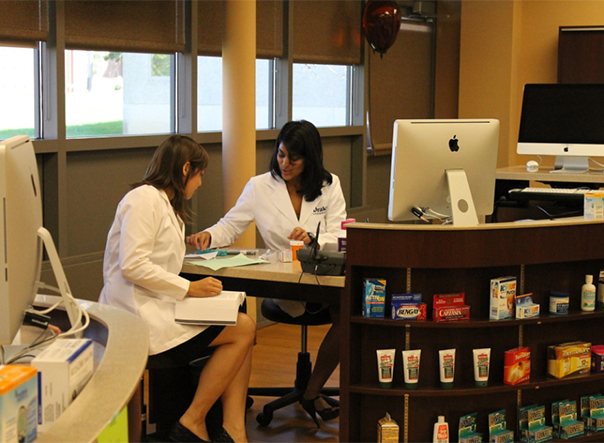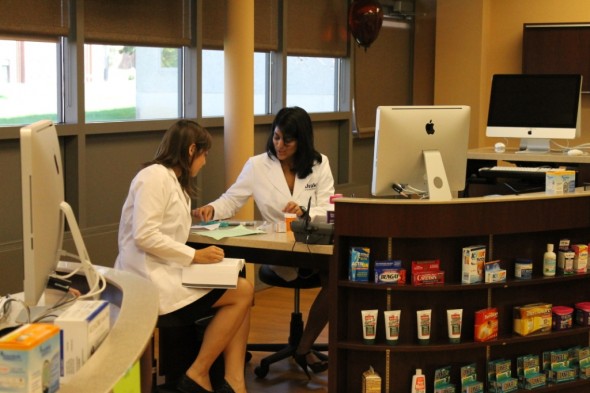Peter Elliott has spent most of his time at Drake interacting with other pharmacy students and pharmacists—until recently. With the Affordable Care Act in full swing and a revived focus on collaborative care, the 2015 Pharm.D. candidate is taking advantage of opportunities to learn with, about, and from other emerging health care professionals.
“So much of my time is spent shadowing professional pharmacists and working in teams with my classmates,” says Elliott. “But as healthcare delivery changes, it’s just as essential to learn how to work with other healthcare providers—understanding our role and theirs is key to providing the patient with the best care possible.”
The Des Moines Area Interprofessional Education Collaborative—organized by faculty at Drake, Des Moines University (DMU), Des Moines Area Community College (DMACC), Grand View University, and Mercy College of Health Sciences—is creating opportunities for students to engage in activities and simulation lab experiences that help them prepare for a collaborative work environment. Elliott is one of several Drake students who have participated in the labs, which involve nursing, medical, and pharmacy students.
In both the fall and spring semester, Drake University hosted a “brown bag” simulation in which students worked in interdisciplinary teams, utilizing a clinical case vignette and medications to address drug therapy problems and provide recommendations. A “brown bag review” is a common practice that encourages patients to bring all of their medications and supplements to a medical appointment so they can ask questions and providers can better identify and/or avoid medication errors. In the simulation, each team worked on four separate cases, involving patients with chronic medical conditions, multiple drug therapy problems, and social issues.
“The simulation labs gave me the chance to learn more about what roles other healthcare professionals play, their responsibilities, and the training they have received,” says Janelle Behnke, 2015 Pharm.D. candidate who, along with Elliott, has taken interest in participating in the labs. “I was impressed by how much the other students knew and was excited to be a resource for questions they had related to pharmacy practice.”
DMU hosted a resuscitation lab, which allowed students to learn about effectively managing a patient who is experiencing acute coronary syndrome. Students also had the opportunity to participate in a medication adjustment activity in a critical care setting simulation that was hosted by DMACC.
“Because Drake does not have all of the healthcare disciplines under one roof, the activities organized by the Des Moines Area Interprofessional Education Collaborative have helped me understand how important it is to utilize other healthcare professionals,” says Behnke. “Each profession has their own niche and area of specialty, but when we collaborate we can provide the highest quality of care for patients.”



